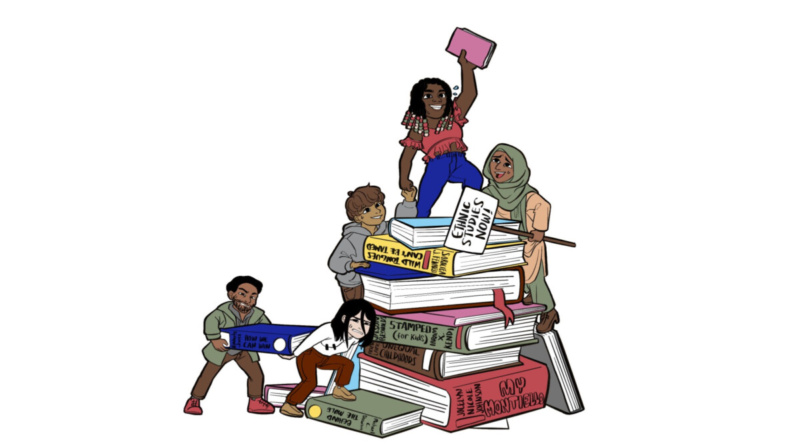Community brings ethnic studies to DJUSD
GRAPHIC: “Ethnic Studies Now” by Emily Tran
By Xochitl Armién
HUB Staff
Fueled by a six-year community effort to make ethnic studies a Davis Joint Unified School District graduation requirement, a freshman-year ethnic studies semester class is set to replace the world geography class during the fall of 2023.
The ethnic studies course was approved by the DJUSD school board on Jan. 19 and will be required for graduation by 2024, getting a head start on the California state mandate.
Due to the state requirement for all K-12 ethnic studies teachers to have a social studies teaching degree, Superintendent Matt Best says that finding and retaining educators with experience with the ethnic studies pedagogy centered around student voices with an anti-racist, social justice lens has been more difficult.
“The thing about Ethnic Studies that is different than most courses is (educators) have to have a particular mindset. You have to be a skilled facilitator of what can be challenging conversations that may occur in class,” Best said.
A team of teachers is currently developing the ethnic studies curriculum units and identifying the readings, potential guest speakers and projects that will be included. The curriculum should be complete by summer.
Anoosh Jorjorian has been working with the Davis community coalition of community advocates, parents and ethnic studies professionals. Jorjorian says that because Ethnic Studies is inseparable from communities of color, those communities need input into how the ethnic studies program is taught and would like to see teachers use the tools that the community offers.
“Anyone who teaches ethnic studies is going to need outside resources, outside voices who can speak from that experience, and we want to make sure that the district is thinking about that, and that we can guide them to appropriate experts who can support teachers,” Jorjorian said.
Natalia Deeb-Sossa, UC Davis professor of Chicana/o Studies and community advocate, says that including the four core groups of Ethnic Studies (Native Americans, African Americans, Asian Americans, Chicane and Latine Americans) into K-12 curriculums is important because their exclusion sends a signal that they have not been valuable or important to the development and creation of the country.
“There’s a certain level of empowerment that happens when you see yourself represented… It opens your mind so that you’re able to dare to dream beyond what you’ve been allowed to,” Daniél Engotto, a Davis High alumni and member of the ethnic studies task force, said.
A Davis school district resolution stated that an ethnic studies program, “can help close (racial opportunity) gaps for students of color and build cross-cultural understanding for all students.”
In order for this effort to be most effective, Deeb-Sossa says that ethnic studies ideals should be integrated across all classes.
“We know ethnic studies makes students more likely to be retained, to graduate, to have greater well-being, to be actually happier… they’re more likely to actually go to college or community college because they’re interested. You study things that you’re interested in,” Deeb-Sossa said.
In addition to seeing themselves reflected in the curriculum, Engotto says that having teachers of color is crucial as their personal connection to the content allows for safe and open conversations.
“The impact will definitely be a lot stronger (if) people are able to see the real-world implications of what they’re learning without just being presented with stories, statistical data and information,” Engotto said.
However, one of the barriers to hiring and retaining teachers of color is the statewide teacher shortage which Deeb-Sossa says could be solved by increasing teacher pay.
“Davis is one of the wealthiest school districts… so if we really value education and the education of our children, are we willing to invest and pay the teachers what we believe they deserve and attract them, and retain them here,” Deeb-Sossa said.


